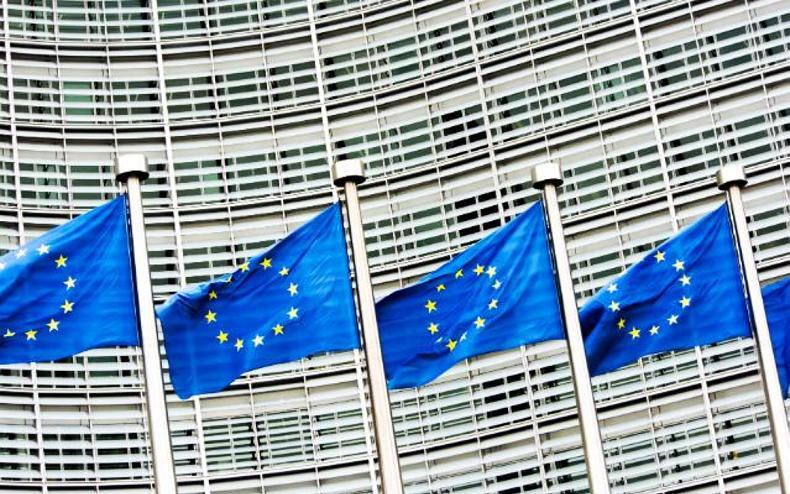European Commission president Ursula von der Leyen’s pledge to up the EU’s game on economic competitiveness against market challenges from the US and China will not necessarily mean a backsliding on the green agenda.
That was the consensus to emerge from the expert panel discussing the incoming Commission at an Institute of International and European Affairs briefing last week.
The speakers said that indications from von der Leyen point to the new Commission staying on track with climate targets, even with the Commission president suggesting that the issue of over-regulation must be tackled at EU level.
Professor of European Politics at Maynooth University John O'Brennan stated that he believes the Green Deal is here to stay.
O’Brennan spoke just ahead of the greenlighting of von der Leyen’s new commissioner team on Wednesday.
'Stay the course'
“She did say we must stay the course of the European Green Deal. I think, by the way, her commitment to the Green Deal began to weaken once the farmers arrived in Brussels in January with the European Parliament elections coming up in May,” he commented in response to a question from the Irish Farmers Journal.
“I don’t think she should have given in on those things, but she was restating her commitment, saying we must be more agile and announcing a clean industrial deal.
“I would like to think that the lead that von der Leyen gave in 2019 that it will be maintained, but there are all kind of national pressures that I think are mitigated in favour of less being done at European level as often.”
Reframing the narrative
Former secretary general of the European Commission Catherine Day suggested that the direction of travel on environmental policy may stay largely unchanged in Brussels under the new commissioners, but that there may be an effort to reframe moves to green the EU’s economy and agriculture.
“I think again that it is right for the Commission to have its own plan. Climate change is something that individual member states can’t deal with, so they have to deal with it collectively,” Day responded to the question.
“They don’t like dealing with it collectively, because compromise means everyone gets something, so you have to take things you don’t like, but I think there may be a change in the way things are put.”
Day said that investment in areas such as renewable energy could be framed as investments in security, rather than just climate, in a bid to get the compromise needed to keep the Green Deal afloat.
“Maybe how it’s done will be subtly different and some of it will be relabelled, but I think she will keep her commitment now that [von der Leyen] is a second-term president and doesn’t have to worry about that anymore.”
Read more
New Commission gets final green light
Who’s sitting where at the new top table in Brussels?
European Commission president Ursula von der Leyen’s pledge to up the EU’s game on economic competitiveness against market challenges from the US and China will not necessarily mean a backsliding on the green agenda.
That was the consensus to emerge from the expert panel discussing the incoming Commission at an Institute of International and European Affairs briefing last week.
The speakers said that indications from von der Leyen point to the new Commission staying on track with climate targets, even with the Commission president suggesting that the issue of over-regulation must be tackled at EU level.
Professor of European Politics at Maynooth University John O'Brennan stated that he believes the Green Deal is here to stay.
O’Brennan spoke just ahead of the greenlighting of von der Leyen’s new commissioner team on Wednesday.
'Stay the course'
“She did say we must stay the course of the European Green Deal. I think, by the way, her commitment to the Green Deal began to weaken once the farmers arrived in Brussels in January with the European Parliament elections coming up in May,” he commented in response to a question from the Irish Farmers Journal.
“I don’t think she should have given in on those things, but she was restating her commitment, saying we must be more agile and announcing a clean industrial deal.
“I would like to think that the lead that von der Leyen gave in 2019 that it will be maintained, but there are all kind of national pressures that I think are mitigated in favour of less being done at European level as often.”
Reframing the narrative
Former secretary general of the European Commission Catherine Day suggested that the direction of travel on environmental policy may stay largely unchanged in Brussels under the new commissioners, but that there may be an effort to reframe moves to green the EU’s economy and agriculture.
“I think again that it is right for the Commission to have its own plan. Climate change is something that individual member states can’t deal with, so they have to deal with it collectively,” Day responded to the question.
“They don’t like dealing with it collectively, because compromise means everyone gets something, so you have to take things you don’t like, but I think there may be a change in the way things are put.”
Day said that investment in areas such as renewable energy could be framed as investments in security, rather than just climate, in a bid to get the compromise needed to keep the Green Deal afloat.
“Maybe how it’s done will be subtly different and some of it will be relabelled, but I think she will keep her commitment now that [von der Leyen] is a second-term president and doesn’t have to worry about that anymore.”
Read more
New Commission gets final green light
Who’s sitting where at the new top table in Brussels?






 This is a subscriber-only article
This is a subscriber-only article










SHARING OPTIONS: